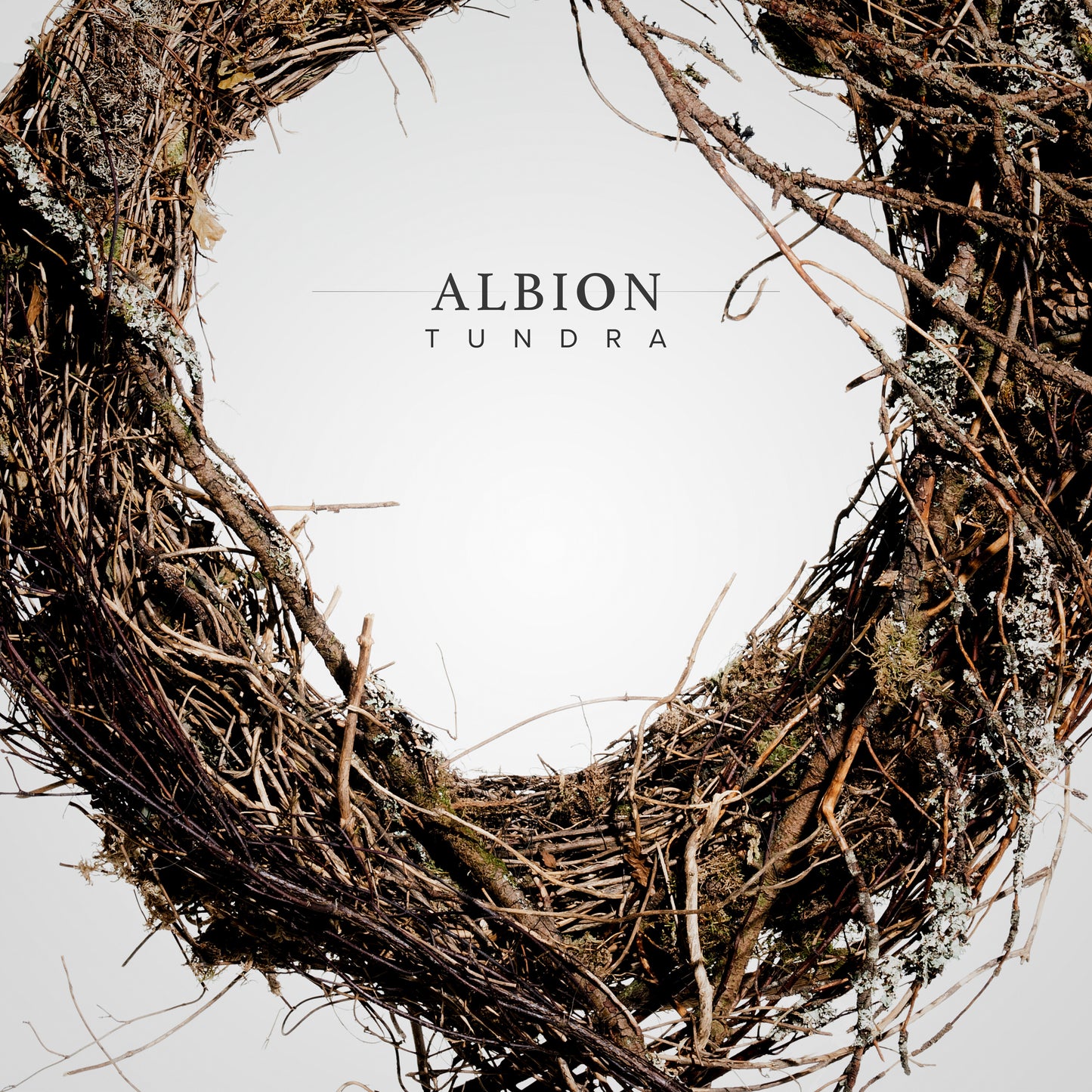Share
Albion Tundra
Albion Tundra
Couldn't load pickup availability
At the edge of silence
Capturing a characteristically Scandinavian sound, we've sampled a 100-piece orchestra playing never-before-sampled techniques, at the very edge of silence. Alongside our huge range of orchestral content are bellows, percussion and a characterful warped synth section — everything you need to take it down a degree or two.
Features
Tundra orchestra
- A 100-piece orchestra recorded to tape at Air Studios, London
- 133 multi dynamic orchestral articulations split across Strings, Brass and Woodwinds ensembles
- 38 violins with 32 articulations including 19 longs, 11 shorts and 2 legatos
- 12 Celli and 6 Basses with 30 articulations including 17 longs, 11 shorts and 2 legatos
- Brass ensembles with 17 unique articulations for both Mid and Low ensembles
- Woodwind ensembles with 18 unique articulations for both High and Mid Ensembles
- Legatos designed by Andrew Blaney
- Multi-mic control with Close, Tree, Outrigger and Ambients
- Recorded using priceless valve and ribbon mics
- Neve Monserrat preamps into a Neve 88R desk
- Recorded digitally at 96k via 2" Studer tape
The "Vral" grid
- 32 hand-crafted slowly evolving drones, with varying loop points
- All housed within our ‘Evo Grid’ engine, for almost limitless randomisation
Stephenson's steam band
- 138 Stephenson Pads housed in our eDNA interface
- Organic sounds created from the orchestral material
- 198 original sounds to create more content from
Brunel loops
- 22 unique instruments with 52 presets
- All played in triplets, 12ths, 8th and 16ths, tempo-synced to your DAW
- Played by the infamous Paul Clarvis
Darwin percussion
- 20 percussive elements
- Single patch for easy playability
Icy strings
Creating something extraordinary often involves taking a leap into the unknown. We knew we wanted the strings to have a 'frozen' sheen to them, and to achieve this we needed to scoop some of the lower mids out of the frequency map.
To do this we made the bold decision to exclude violas from the orchestra, replacing them with rich celli and basses — 12 Celli and & 6 Basses sat in the middle of the room, with two massively enhanced violin sections of 20 and 18 players sat in antiphon (opposite sides of the room). We give you a huge selection of articulations ranging from classics such as our ever popular flautando, but with mutes added, and sections playing poly-divisi, so that even with a band of this size, every player can be heard.
We also explored unorthodox approaches — from requesting that players attend the session with practise bows with no rosin on the hair for minimum traction, to bowing the strings with the back of the bow.
Resident AIR Studios engineer Jake Jackson's real challenge, with the roof fully elevated so that the signal contains as much early reflection as possible, was trying to get the musicians louder than the ambient room tone.
We recorded the strings in two sections, high and low, with matching articulations where possible. Highlights alongside these cascading longs articulations are flautando legatos, brushed shorts, and some extraordinary loose pizzicatos.
Whispering choruses
When it came to Woodwinds and Brass, we recorded four different bands (high winds, mid winds, mid brass, low brass), approaching the sampling process with a choral mode in mind. Our instructions to all bands were that we wanted it to sound raw, honest and non-Conservatoire, but with very specific textural approaches that liven the hall, to create a very natural, mossy texture.
The entire Tundra Orchestra played from quiet markings all the way down to silent oblivion, resulting in a deeply dynamic and timbral set of expressive instruments that quite happily act as a standalone orchestral toolkit, albeit with a unique quality.
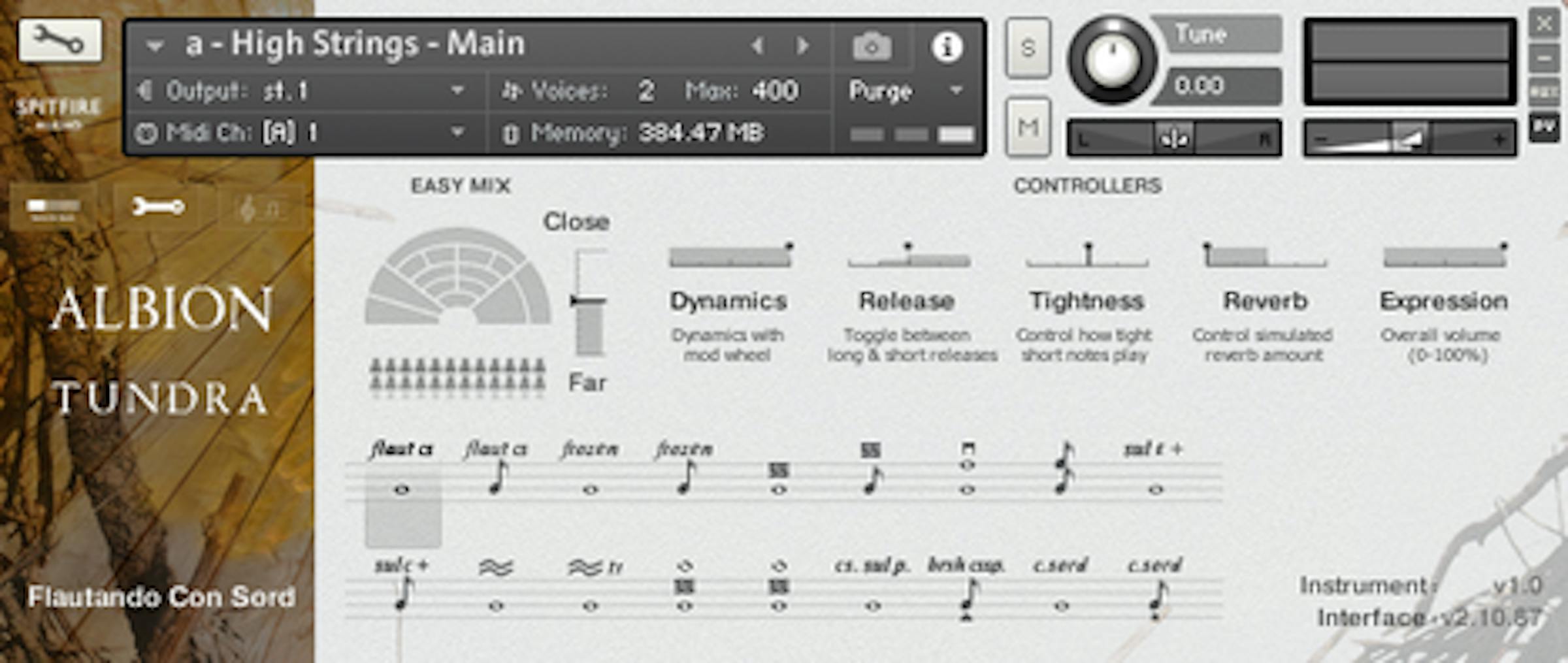
The overview panel
This is the main interface for melodic instruments. Its default view displays all available playing techniques, has a simple microphone mixer and includes the main feature controllers.
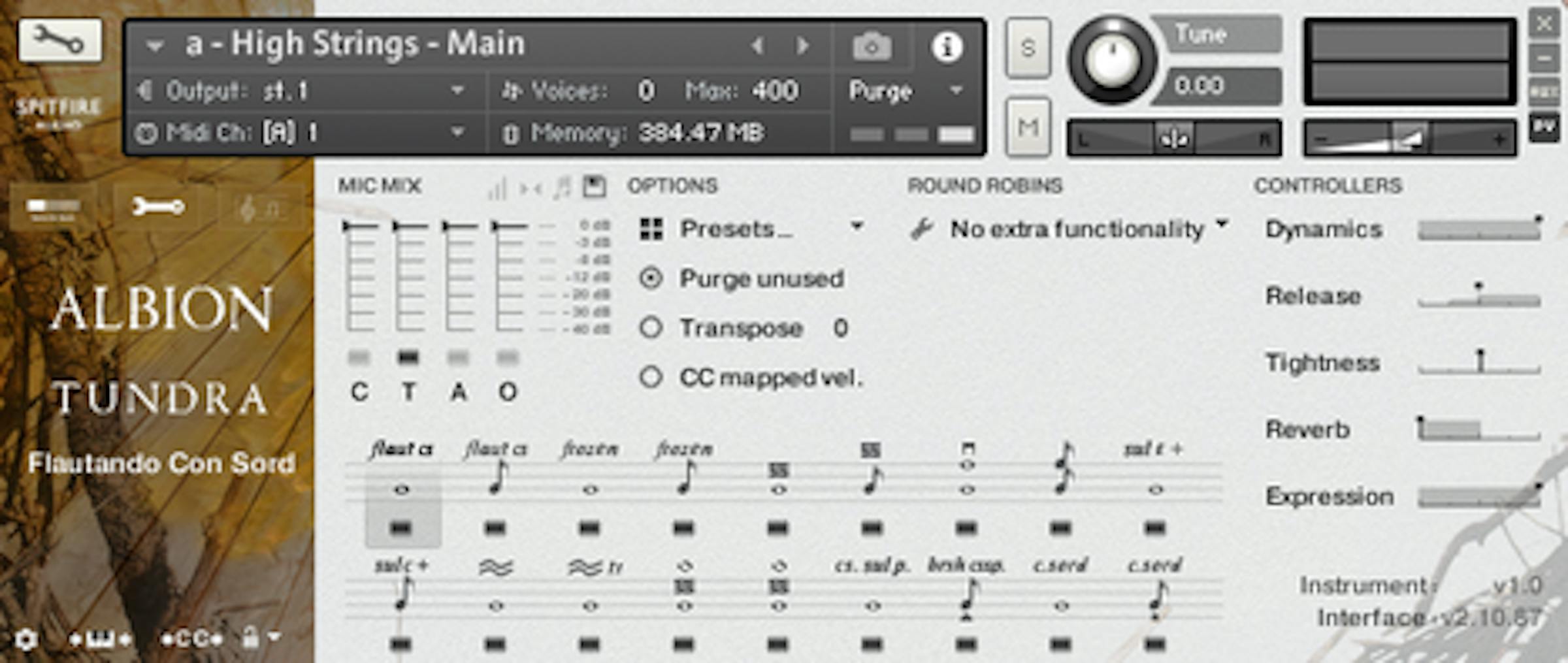
General controls panel
This view allows further in-depth control of the instrument, showing all available signals and feature controllers, as well as the ability to purge techniques from memory to reduce system usage.
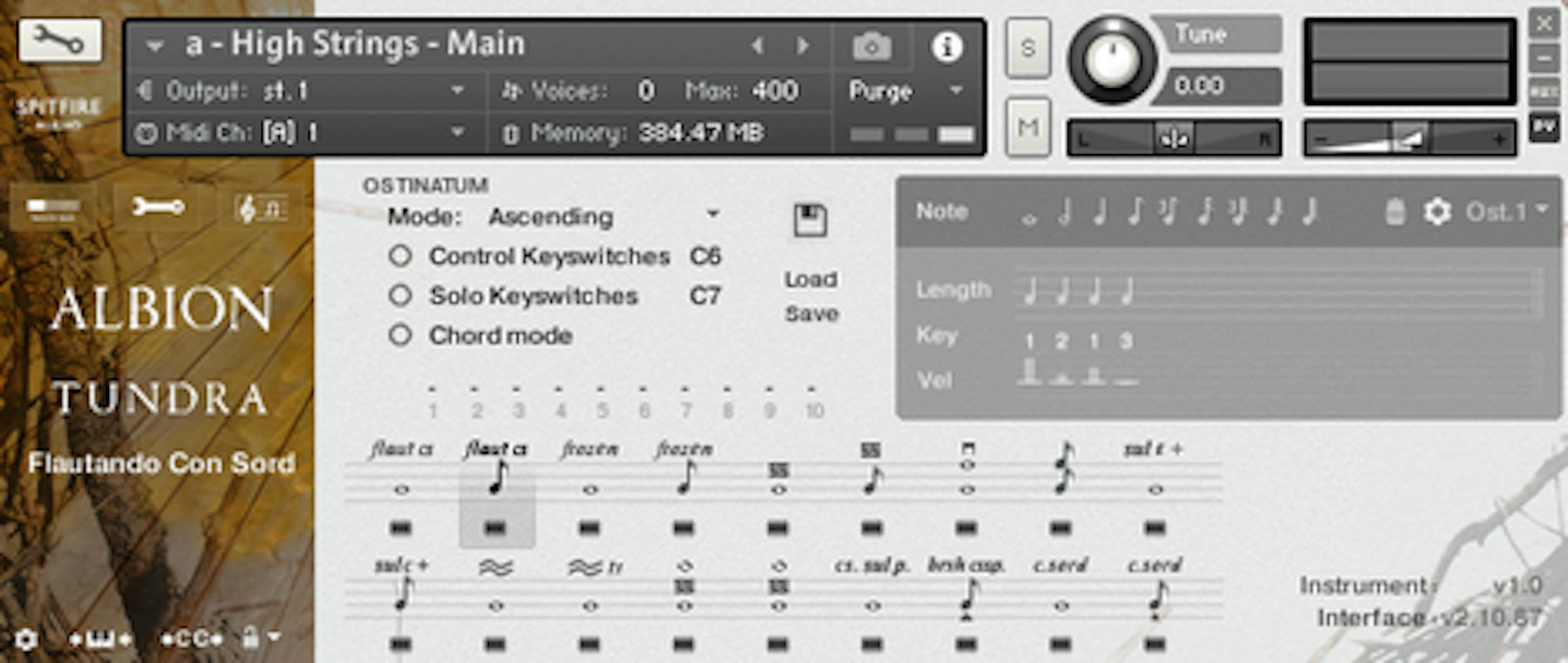
The Ostinatum
In this view you can add notes to a pattern sequencer, select which key it triggers on and then play for instant ostinato creation. It’s like an arpeggiator on a synthesiser.
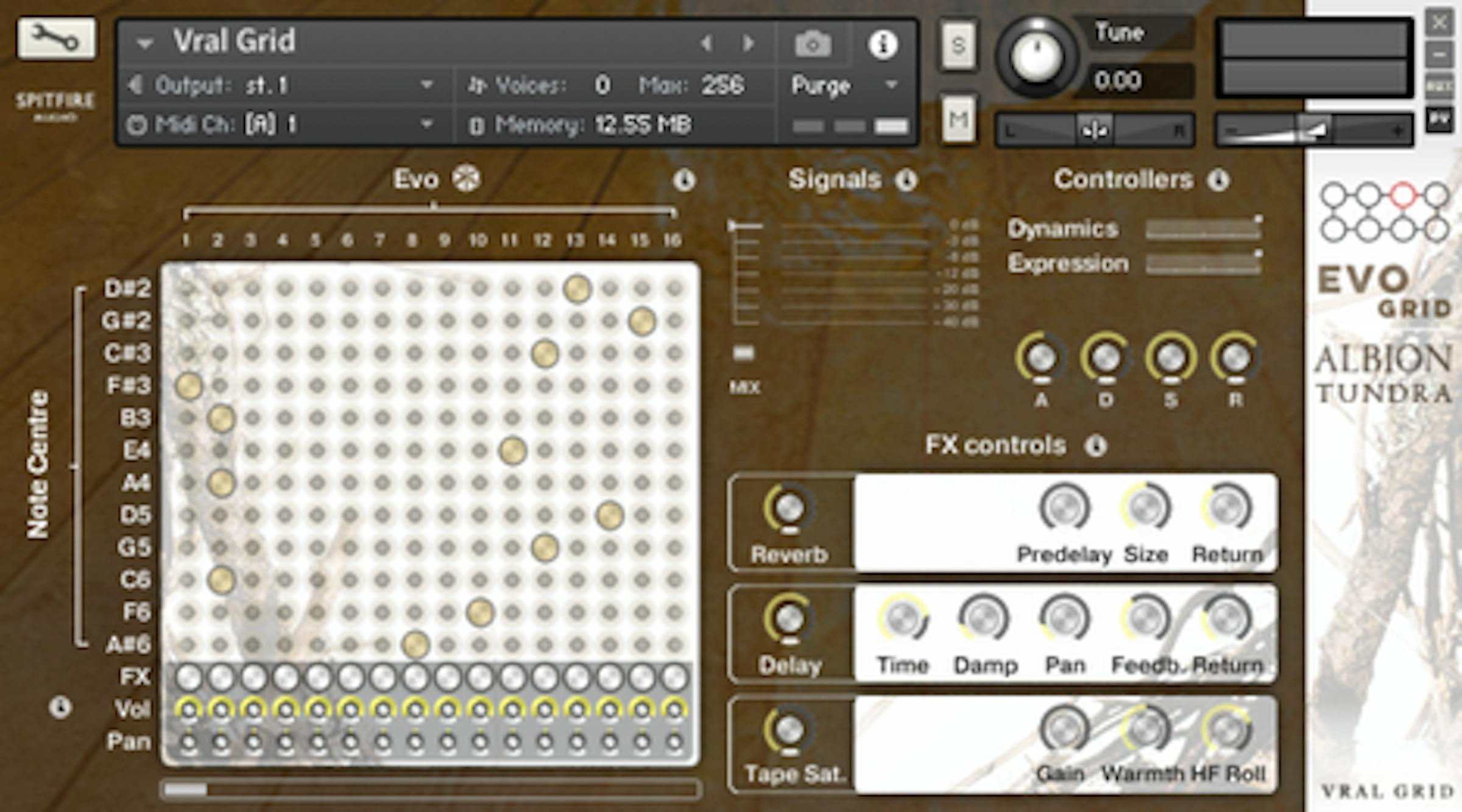
The Evo Grid
Based on the EMS VCS3 synth, this extraordinary and unique interface allows for instant gratification and customisation. With 1 or 2 clicks, you will be armed with something totally unique and inspiring. Scroll the Evo Grid to discover and activate Evos that are not visible. Pan and tweak each Evo for perfect blending. Punch in or out 3 useful modulators and effects. Mix your mic positions, all from the front panel.
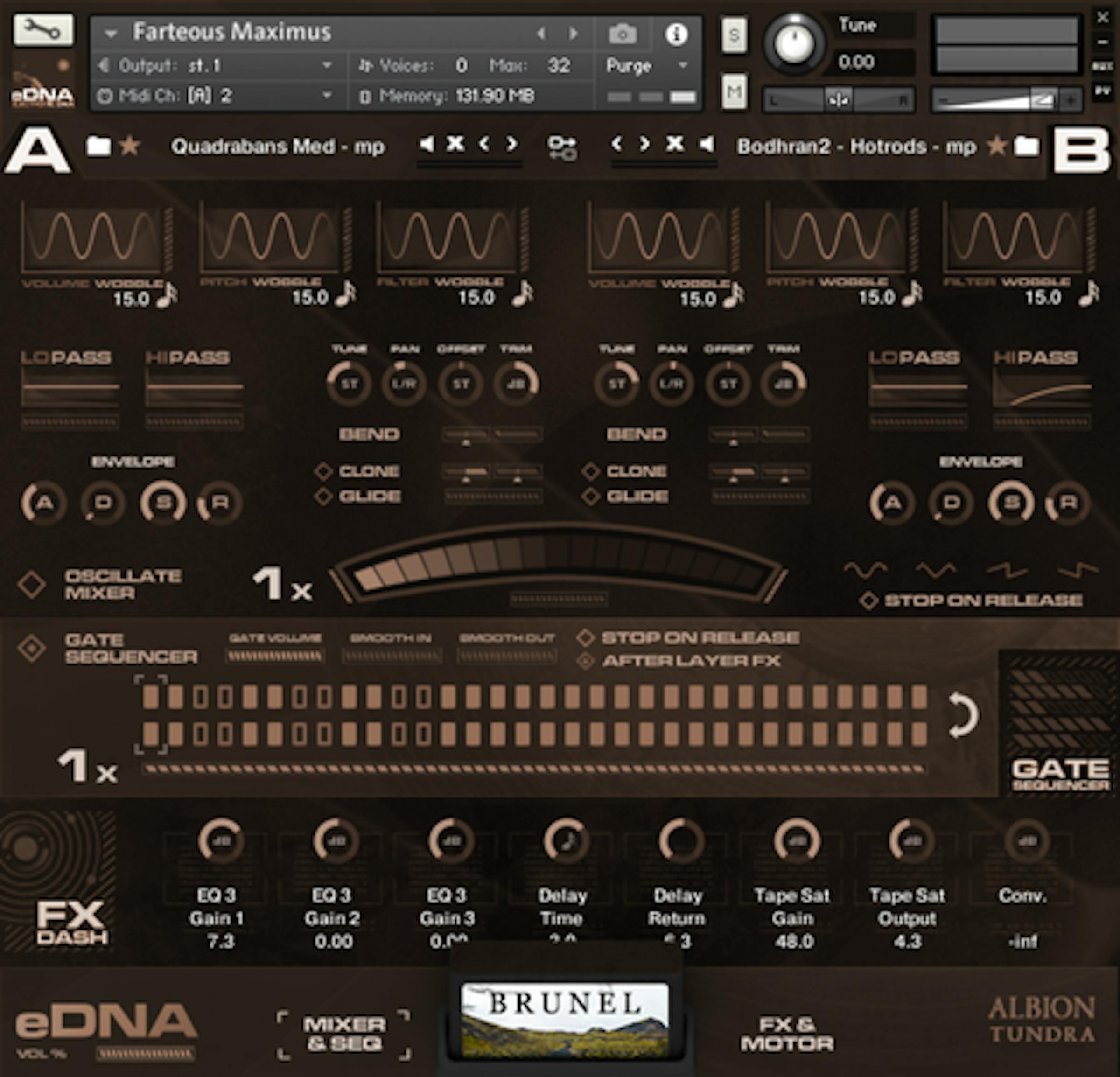
eDNA Engine
This interface houses our own sample-synthesiser engine. You can use it to combine two sounds and modulate between them with envelopes, filters and wobbles per sound, as well as a gate sequencer and a selection of go-to FX.
Tech specs
Mac system requirements
Mac OS 11, 12 or 13
Both Intel and Apple Silicon/ARM are supported
Minimum: 2.8GHz i5 minimum (quad-core), 8GB RAM
Recommended: 2.8GHz I7 (six-core), 16GB RAM
32-bit systems are not supported.
PC system requirements
Windows 10 or Windows 11 - (Latest Service Pack, 64-bit)
Minimum: Intel 2.8 GHz i5 (quad-core) or AMD Ryzen 5, 8GB RAM
Recommended: Intel Core i7 6th gen and later or AMD Ryzen 7, 16GB RAM
32-bit systems are not supported.
File size
~27860 samples
56.8 GB uncompressed .WAV
44.4 GB download size
88.80 GB disk space required during install
Too large to download? Choose hard drive delivery at checkout
Kontakt player
Kontakt Full or Kontakt Player 5.6.8 or higher
